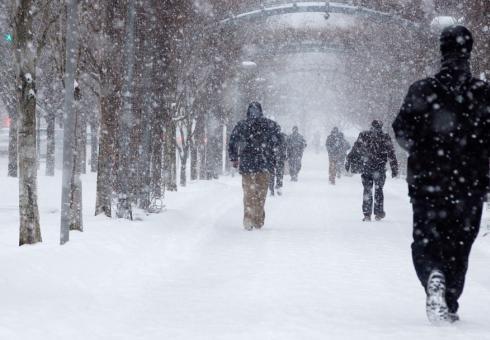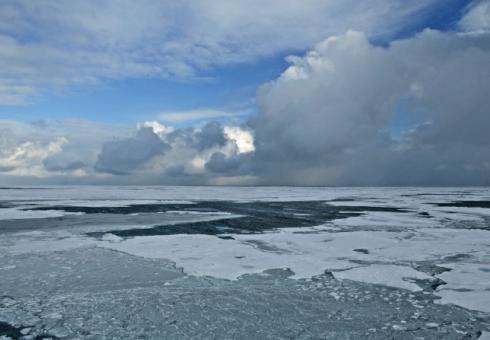Joint Program In the News
MIT's Prof. Noelle Selin appeared on CBC's The Exchange with Amanda Lang to discuss the findings of a study recently published in Nature Climate Change. Watch the interview below.
...Study finds big snowstorms will still occur in the Northern Hemisphere following global warming.
Genevieve Wanucha
Oceans at MIT
Carl Wunsch (MIT PhD ’67), Cecil and Ida Green Professor Emeritus of Physical Oceanography at MIT, has spent an entire career investigating the ocean’s role in climate, from both observational and theoretical angles. Early in his career, he...
James Hamblin
The Atlantic
The polar ice caps feel remote. The threat of orioles permanently leaving Baltimore for cooler climates might be a little more compelling. But researchers are learning that the most effective way around climate-policy ambivalence is to invoke...
Jared Gilmour
Christian Science Monitor
President Obama’s controversial plan to phase out coal and slash carbon emissions is an expensive one. But a new study suggests it could...
Genevieve Wanucha
MIT News
Over recent decades, scientists have watched a climate conundrum develop at the opposite ends of Earth: The Arctic has warmed and steadily lost sea ice, whereas Antarctica has cooled in many places and may even be gaining sea ice. Now, MIT researchers have...
Ben Geman
National Journal
Don't expect too much from the global climate-change accord that's expected to emerge from high-stakes international talks in Paris next year.
Laura Barron-Lopez
The Hill | Energy & Environment
Negotiations among global leaders in Paris next year meant to mitigate climate change and keep the global temperature below 2 degrees Celsius are likely to fail, according to a new study.
The Massachusetts Institute of...
by Robert H. Frank
NY Times | The Upshot
[Excerpt from full article]
Myth 6: Penalizing greenhouse gas...
Eliene Augenbraun
CBS News
The world will need 50 percent more food by 2050 due to both an increasing population and a shift toward a more Westernized diet in developing countries. But as our need for food rises, our ability to produce that food may be lowered by...











